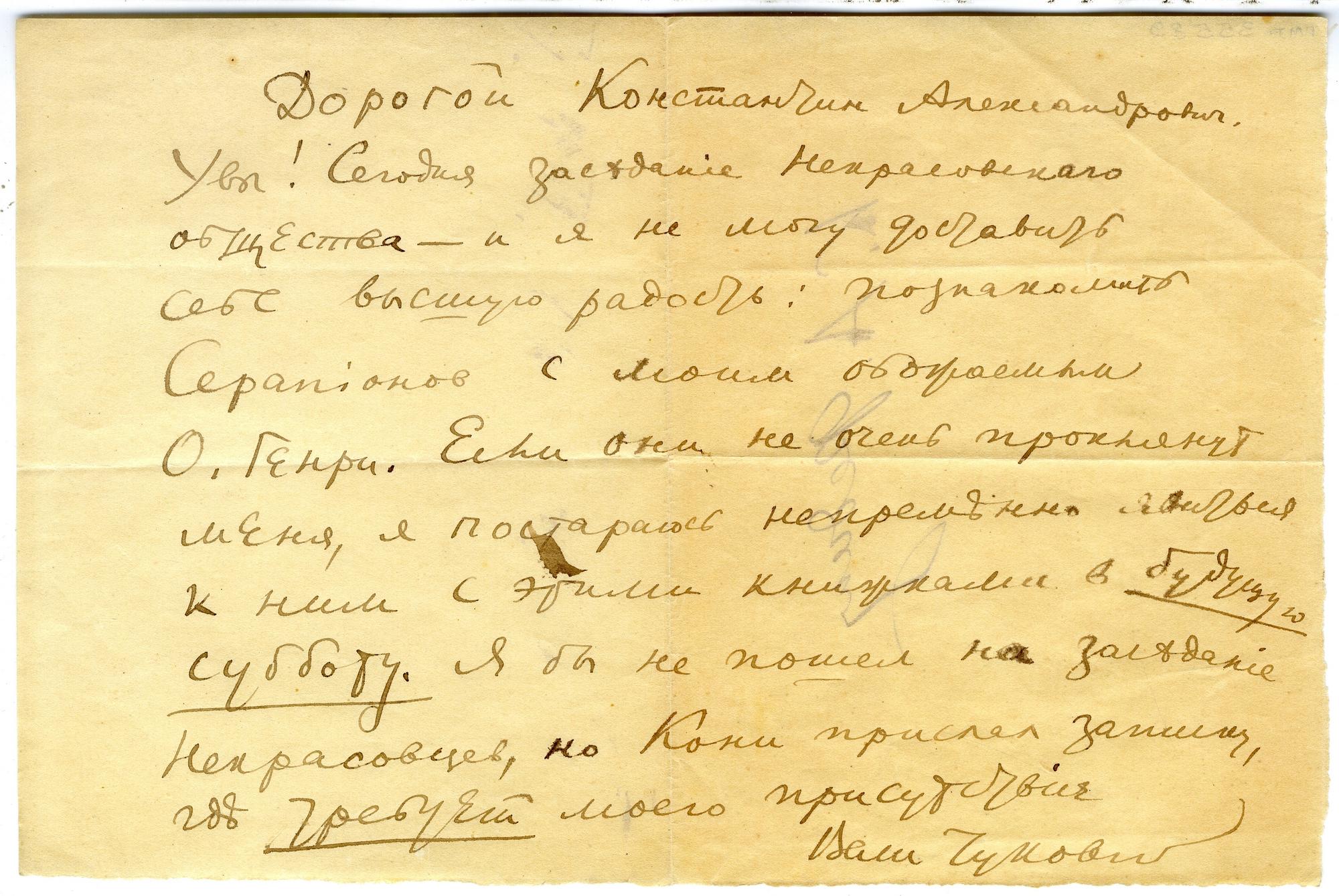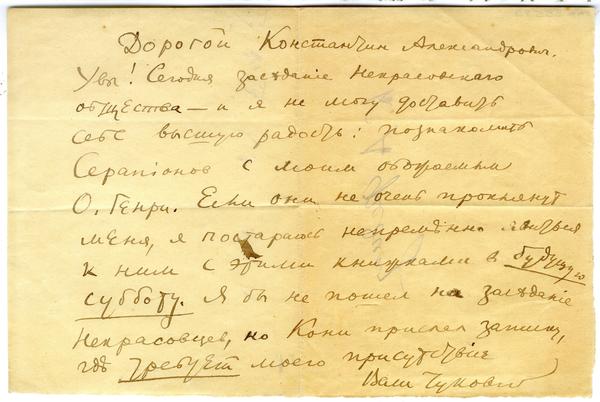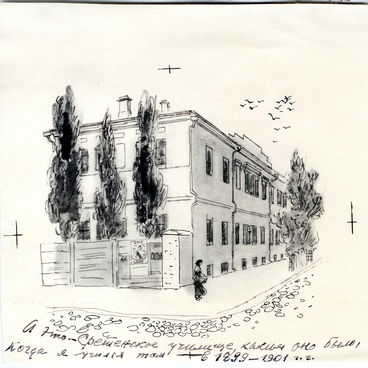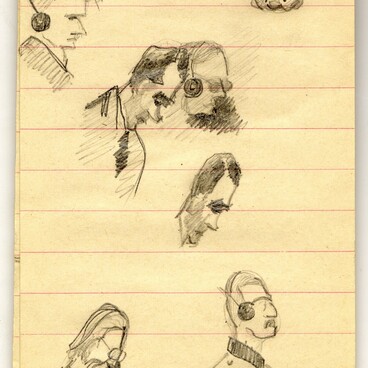Korney Chukovsky (1882–1969) was a writer, poet, literary critic, translator and columnist. He first met Fedin in Petrograd in the winter of 1920. The day before, Fedin had had a momentous encounter with Maxim Gorky, who not only helped give the young writer confidence in his abilities, but also introduced him to Petrograd’s literary circles. Gorky showed Fedin the city’s literary landscape, painting a colourful picture of the artistic life of the city during those years. When he met Fedin at a function of the Petrograd Union of Proletarian Writers, Gorky suggested that Fedin stick with the House of Arts crowd, which at that point included authors valued by Gorky: Blok, Zamyatin, Chukovsky and others. Fedin took Gorky’s advice.
It was there he met Chukovsky. And it was during this very first meeting of the two that Fedin read some of his short stories to his new acquaintance. Fedin recounted the incident in a letter to his sister on 2 March 1920. He told her that, according to what others had said, Chukovsky had commended him as “a very talented person.” This was very significant, given that Korney Chukovsky was known as an extremely harsh literary critics.
Fedin started going to the literary studio where Chukovsky taught young authors. He never lost the feeling instilled in him by Chukovsky when they first met: “It”s strange that I still feel like his junior…” he wrote on 23 September 1955. In 1920–1921, Fedin and Chukovsky met several times in the House of Arts, where the latter gave lectures on O. Henry, Akhmatova, Mayakovsky, Nekrasov and Muravyov, as well as on all the subjects of his own work at the time. Fedin recalled this habit of Chukovsky with certain irony in a journal entry of 19 December 1932: “Korney brought his Chukokkala, and he was already giving lectures on it (like in 1920, when he was giving lectures on everything that he had – Wilde, Whitman, Vvedensky”s translations, etc.).”
In the letter exhibited here, Chukovsky writes about a lecture on the works of the American writer O. Henry that he was supposed to give at The Serapion Brothers but did not take place because of a conflicting meeting of the Nekrasov Society. The lecture was subsequently postponed until 26 February 1922. The two writers remained friends for over 40 years. They even became neighbours in Peredelkino, where they would often chat. The two would also give each other their newly published works as presents.
It was there he met Chukovsky. And it was during this very first meeting of the two that Fedin read some of his short stories to his new acquaintance. Fedin recounted the incident in a letter to his sister on 2 March 1920. He told her that, according to what others had said, Chukovsky had commended him as “a very talented person.” This was very significant, given that Korney Chukovsky was known as an extremely harsh literary critics.
Fedin started going to the literary studio where Chukovsky taught young authors. He never lost the feeling instilled in him by Chukovsky when they first met: “It”s strange that I still feel like his junior…” he wrote on 23 September 1955. In 1920–1921, Fedin and Chukovsky met several times in the House of Arts, where the latter gave lectures on O. Henry, Akhmatova, Mayakovsky, Nekrasov and Muravyov, as well as on all the subjects of his own work at the time. Fedin recalled this habit of Chukovsky with certain irony in a journal entry of 19 December 1932: “Korney brought his Chukokkala, and he was already giving lectures on it (like in 1920, when he was giving lectures on everything that he had – Wilde, Whitman, Vvedensky”s translations, etc.).”
In the letter exhibited here, Chukovsky writes about a lecture on the works of the American writer O. Henry that he was supposed to give at The Serapion Brothers but did not take place because of a conflicting meeting of the Nekrasov Society. The lecture was subsequently postponed until 26 February 1922. The two writers remained friends for over 40 years. They even became neighbours in Peredelkino, where they would often chat. The two would also give each other their newly published works as presents.




